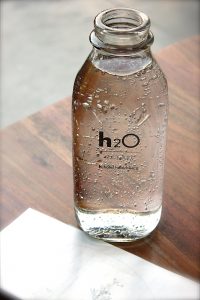 There’s been a lot of talk and questions about protein water recently. The first question is always, “Is there really such a thing as protein water?” The answer is, “Yes, Virginia, there is a thing called protein water.” It does start with water and does contain protein. The process of making protein water starts with whey protein isolate that’s taken from cow’s milk and adding it to water. It can also use other types of protein that are either animal-based proteins or plant-based, which offer more variety to suit special dietary needs.
There’s been a lot of talk and questions about protein water recently. The first question is always, “Is there really such a thing as protein water?” The answer is, “Yes, Virginia, there is a thing called protein water.” It does start with water and does contain protein. The process of making protein water starts with whey protein isolate that’s taken from cow’s milk and adding it to water. It can also use other types of protein that are either animal-based proteins or plant-based, which offer more variety to suit special dietary needs.
You’ll get more protein without the calories in some protein water.
Just like anything, not all protein water choices are alike. However, there are plenty of choices that are higher in protein and lower in calories. Other brands may use added sugar, artificial flavor and color or other types of sweeteners. You want to avoid those brands, particularly if you’re drinking protein water regularly. Depending on the brand, protein water can fill some of your nutritional needs with vitamins and minerals. If it’s made with whey protein, it can contain calcium and magnesium. Other types may add vitamins and minerals to boost your vitamin B, C and D intake.
If you’re trying to lose weight, it’s a great alternative for a protein shake.
Protein water contains fewer calories than most protein shakes and less sugar. So if you want some protein after a tough workout to help with recovery, it can help you. The protein taken after a workout increases the rebuilding process, but it’s not the best solution. Rather than grabbing a shake or protein water, you’d be better off eating food after a workout and getting protein from a plant based source like beans or from meat. Not only is that more satisfying, it also keeps you feeling fuller longer.
There is a downside to protein water.
If it sounds too good to be true, it is. Everything has a downside and that’s also true for protein water. Anyone that has kidney problems should avoid protein water, just as those who have trouble metabolizing protein. It doesn’t overcome those issues with protein in the diet, just adds to them. For others, it might be a refreshing change of pace for a recovery drink. There’s about 15 to 20 grams of protein in a 16-oz bottle and 70 calories. If you ate a chicken breast, you’d get about 27 grams of protein and 240 calories, so protein water is a viable option, even if it isn’t as satisfying as a chicken breast.
- If you’re lactose-intolerant, beware of the protein contained in most protein water. Whey isolate is dairy, so unless you want to feel bloated or sick, read the label before you buy it.
- To build muscle throughout the day, you should aim for a daily protein intake of about 1.2-2.0 g per kg of target body weight, he says. So chugging a 16-oz. bottle of protein water after your workout isn’t really gonna do much.
- While protein water won’t hurt you, it’s probably unnecessary to meet your protein needs. Most people get enough protein. If you’re working out, there are yummier ways to meet that after workout protein need.
- Rather than focusing on protein water, focus on plain H2O with a side of protein. Drinking more plain water is better for you and far easier on your budget. Save even more by putting your own water in a bottle and taking it with you, rather than buying bottled water.
Contact us today at Craig Long Fit
